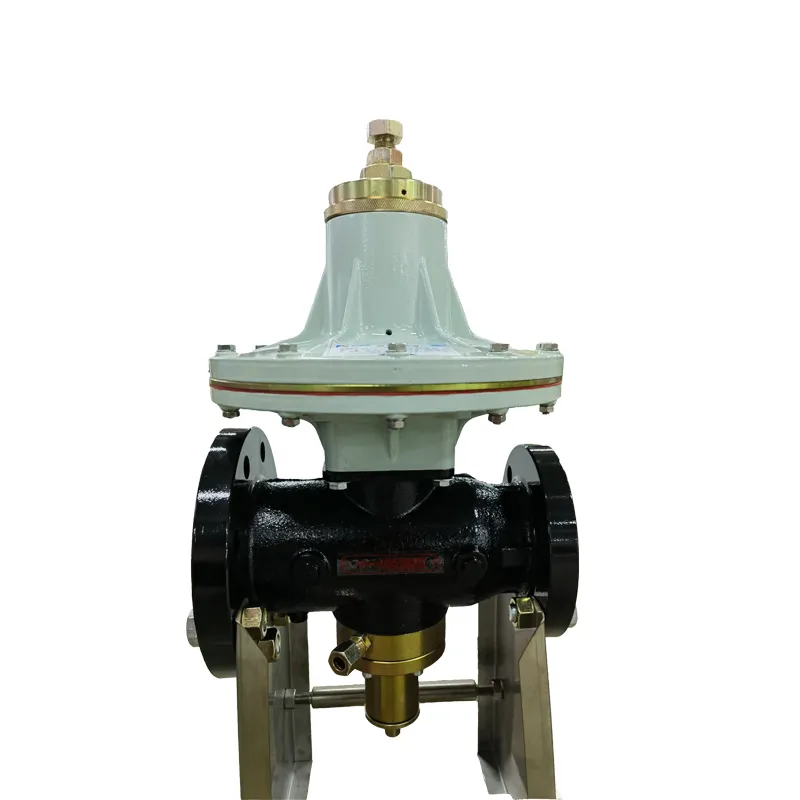
Oct . 09, 2024 13:42
Back to list
gas valve
Understanding Gas Valves Essential Components in Modern Systems
Gas valves are critical components in various applications, ranging from household appliances to industrial processes. These devices control the flow and pressure of gas, ensuring safe and efficient operation in systems that rely on gas as a fuel source. Understanding the types, functions, and maintenance of gas valves is essential for both users and technicians.
Types of Gas Valves
Gas valves come in a variety of types, each designed for specific applications. The most common types include
1. Manual Valves These valves require manual operation for controlling gas flow. They are typically used in situations where frequent adjustments are not necessary. Manual valves can be found in gas grills, fireplaces, and other residential applications.
2. Automatic Valves These valves operate without human intervention, often using electric or pneumatic signals to open or close the flow of gas. Automatic gas valves are commonly used in industrial settings where precise control is required for safety and efficiency.
3. Solenoid Valves A subtype of automatic valves, solenoid valves use electromagnetic coils to control gas flow. When an electric current is applied, the coil generates a magnetic field, which opens or closes the valve. They are widely used in applications like gas appliances, heating systems, and automated processes.
4. Safety Valves Safety valves are essential for preventing overpressure situations. They automatically release gas when the pressure exceeds a specified limit, protecting pipes and equipment from potential damage.
Functions of Gas Valves
Gas valves serve several key functions in both residential and industrial applications
- Flow Control The primary function of gas valves is to regulate the flow of gas to various components of a system, ensuring the right amount of fuel is delivered for efficient operation.
gas valve

- Pressure Regulation Gas valves help maintain stable pressure levels within a system. This is crucial for ensuring that appliances operate safely and effectively, as fluctuations in pressure can lead to malfunctions or hazardous conditions.
- Shut-off Mechanisms Many gas valves are equipped with shut-off features that allow users to quickly and safely stop the flow of gas in emergencies. This is particularly important in residential settings where gas leaks can pose serious risks.
Maintenance of Gas Valves
Proper maintenance of gas valves is vital for ensuring their longevity and safe operation. Here are some tips for maintaining gas valves
1. Regular Inspections Schedule regular inspections to check for leaks, corrosion, or wear. This is especially crucial in older systems where deterioration may occur.
2. Clean Valves Dirt and debris can hinder the operation of gas valves. Regularly clean the external surfaces and, if applicable, the internal components according to manufacturer guidelines.
3. Check Seals and Gaskets Inspect seals and gaskets for any signs of wear or damage. These components are important for preventing leaks and should be replaced if compromised.
4. Professional Servicing For complex systems, engaging a certified technician for maintenance and repairs is recommended. Professionals can perform more thorough evaluations and ensure compliance with safety standards.
Conclusion
Gas valves play a pivotal role in the safety and efficiency of gas-operated systems. Whether in a home or an industrial environment, understanding the various types of gas valves, their functions, and proper maintenance practices can help ensure optimal performance and safety. As technology advances, innovations in gas valve design and functionality continue to emerge, promising even greater reliability and efficiency in how we utilize gas. Whether for cooking, heating, or industrial processes, gas valves will remain an essential aspect of modern living and development.
Latest news
-
Safety Valve Spring-Loaded Design Overpressure ProtectionNewsJul.25,2025
-
Precision Voltage Regulator AC5 Accuracy Grade PerformanceNewsJul.25,2025
-
Natural Gas Pressure Regulating Skid Industrial Pipeline ApplicationsNewsJul.25,2025
-
Natural Gas Filter Stainless Steel Mesh Element DesignNewsJul.25,2025
-
Gas Pressure Regulator Valve Direct-Acting Spring-Loaded DesignNewsJul.25,2025
-
Decompression Equipment Multi-Stage Heat Exchange System DesignNewsJul.25,2025

